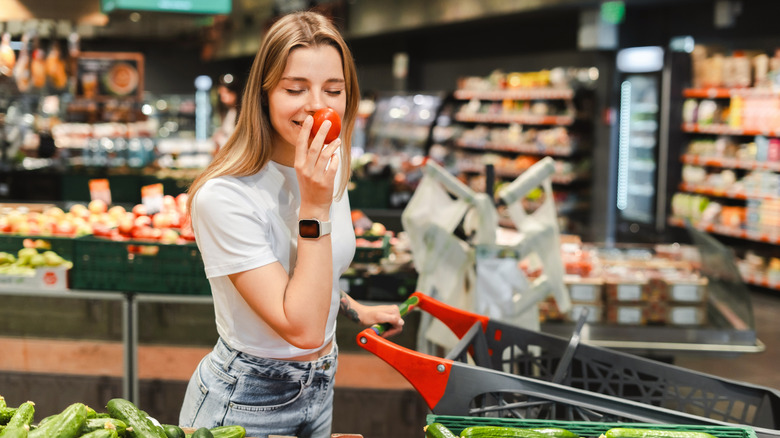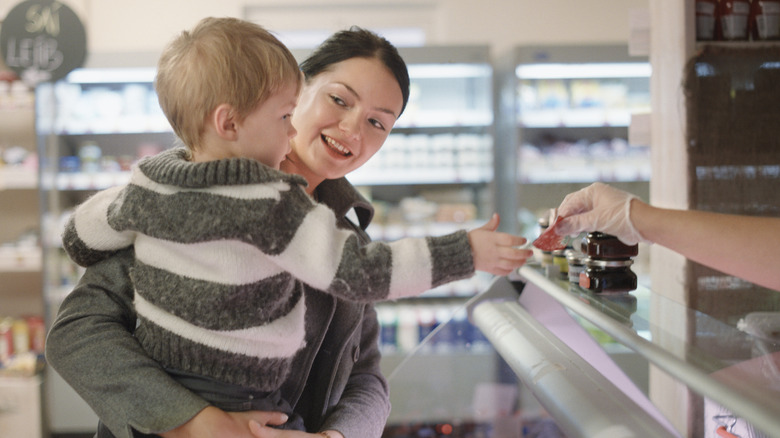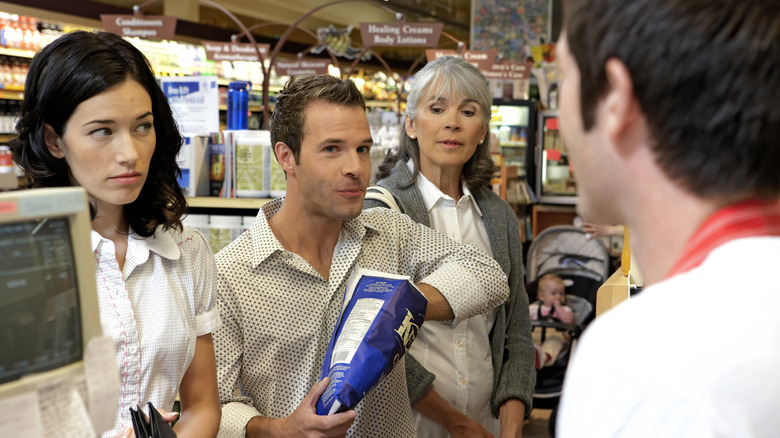Is It Ever Okay To Try Before You Buy At Grocery Stores?
Grocery stores are a minefield for ethical dilemmas. When you have a small child with you, is it okay to leave your cart in the parking lot? If the express lane is for 10 items or less, can you go through with 12? What exactly is the etiquette for self-checkout? Then there's the divisive subject of trying before you buy. Is it legal and ethical to eat or drink items you pick up in the grocery store before you buy them? The answer is yes ... and no.
The question is a controversial one. In 2019, "TODAY" show anchor Sheinelle Jones got into a friendly verbal sparring match with co-anchor Craig Melvin when she confessed to snacking while shopping, and he chastised her for stealing. In fact, the show conducted a poll on Twitter in which 46.6% of respondents said eating food before you buy it is never okay, while 18.4% said it was fine and 35% said it depends on the item. It's a contentious subject, for sure, one about which everyone seems to have strong opinions, but the answer is nuanced. In short, it depends.
If you try, you must buy
There are good reasons why stores like Whole Foods and Costco offer free samples. First, it introduces customers to products they otherwise might not purchase, and it ensures that you know you'll like a product before you spend money on it. Accordingly, stores are strategic about what they offer samples of — usually they are items they are especially motivated to sell or that have a high likelihood of not pleasing customers. In other words, the grocery store is not a buffet that customers may randomly sample from, then decide against.
If you already are planning to buy the item and follow through with the purchase, it's often fine to crack open a packaged food and eat a bit ahead of time. Harried parents with hungry, cranky young children may calm them with a snack cake, enabling a more pleasant shopping experience for the parents and those around them. For an act to be considered shoplifting, according to FindLaw, two things must happen: The shopper must take possession of an item being offered for sale, and the shopper must intend to deprive the store of the item without paying for it. Intent is the key. As long as you proceed with the purchase and your eating some of the item won't result in any lost profit for the store, snack away!
When it's okay, and when it's not
Many packaged goods, such as granola bars, potato chips, bottled drinks, or even a box of bakery donuts, are labeled with flat prices, so sipping or snacking from them before you pay does not affect the price and is therefore fine. These items also can be rung up easily by a cashier without spills or messes for them or other customers to deal with.
However, for groceries whose cost depends on weight, typically produce or items in bulk bins at discount stores like candy or spices, eating them without paying first means you've deprived the store of the money equivalent to the weight you've eaten. That's intent to deprive the store of payment, according to the law, so that would be considered shoplifting. And out of common courtesy, if your opening and eating from the package might create a mess for the store or is unsanitary or unpleasant for the cashier to touch, save your snacking for after you pay.


